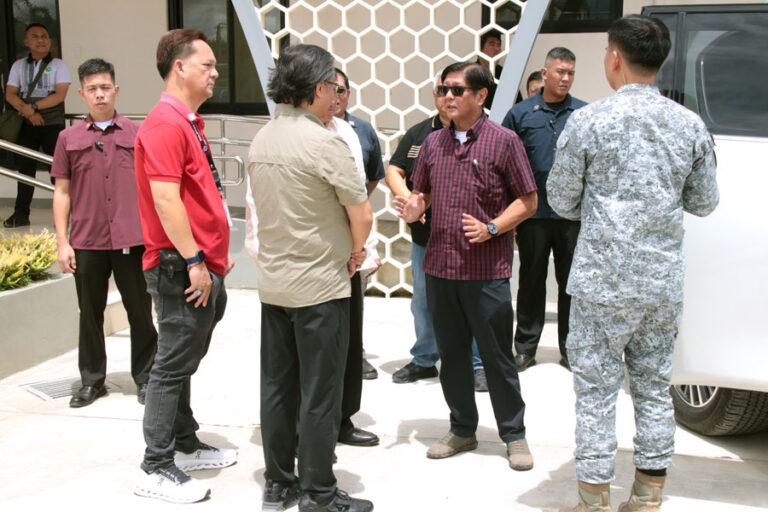MALAYSIA HAS REJECTED anew the Philippine claims on Sabah on the mineral-rich island of Borneo as Manila again raised the issue.
“The state of Sabah is an integral part of Malaysia. This fact has been duly recognised and accepted by the United Nations and the international community since the formation of the Federation of Malaysia on September 16, 1963 and therefore, any statements alluding to or insinuating the anachronistic claims will be rejected as unfriendly towards Malaysia,” the Malaysian Foreign Ministry said.
Filipino Foreign Affairs Secretary Teodoro Locsin Jr said Sabah – now one of the 13 states of Malaysia – belongs to the Philippines.
Early this year, he also said that the Philippines should keep an eye on defending its claims on Sabah because “some jerks are proposing we compromise our historical claim to it with diplomatic moves of implicit surrender.”
Singapore’s The Independent newspaper also quoted Locsin recently as saying during a budget hearing at the House Committee on Appropriations that “we shall never have an Embassy in Sabah. To even think of it is an act of treason.”
Locsin’s statement was in answer to Lanao del Norte Rep. Khalid Dimaporo who asked him if the Department of Foreign Affairs has allocated funds for Sabah, which was annexed by Malaysia in the 1960s.
The newspaper also quoted Dimaporo as saying that “Sabah is one of the parts of the Bangsamoro territory hence Manila should claim that Sabah is part of the Philippines and not part of Malaysia.”
Last year, Malaysia also tightened its grip on Sabah following a proposal by a member of the Philippines’ 25-man consultative committee tasked with reviewing and proposing amendments to the Constitution to include Sabah as the country’s 13th federal state.
Former senator Aquilino Pimentel Jr made the proposal while Filipino lawmakers were preparing to amend the 1987 Constitution and shift from presidential to federal form of government. He said the Duterte administration should continue to push for the country’s claim to Sabah in a way acceptable to international laws.
“There should be a way that is acceptable under international laws to assert our claim to Sabah. I think we can defer it a little bit more, but to say that we stop doing it is not in the context of my proposal,” he told ABS-CBN Television.
He also wanted Scarborough and Spratlys – which is being claimed by China and other ASEAN countries as theirs – to be part of the federated states of the Philippines.
Pimentel has also proposed the following to form part of the federal states Northern Luzon, Central Luzon, Southern Luzon, Bicol, Eastern Visayas, Central Visayas, Western Visayas, Minparom, Northern Mindanao, Southern Mindanao, Bangsamoro and Metro Manila as its capital.
“Eventually once we have asserted our sovereignty and rights over Sabah, we should include Sabah. Not only Sabah, but also Scarborough, Benham Rise, and Spratlys,” Pimentel said.
Malaysian Foreign Minister Anifah Aman last year also said: “The Government of Malaysia reiterates its position that Malaysia does not recognise and will not entertain any claims by any party on Sabah. Sabah is recognised by the United Nations and the international community as part of Malaysia since the formation of the Federation on 16 September 1963,” Anifah said.
“Therefore, statements such as these will only expose the ignorance of history and international law of those who make them, as well as potentially harming the excellent bilateral relations which Malaysia and the Philippines currently enjoy.”
Defenders of the Sultanate of Sulu
In January 2018, Malaysia’s Supreme Court upheld the death sentence for 9 Filipinos who were charged with waging war against the Malaysian King during the 2013 assault on Lahad Datu in Sabah.
The Filipinos have been identified as Julham Rashid, 70; Virgilio Nemar Patulada, 53; Salib Akhmad Emali, 65; Tani Lahad Dahi, 64; Basad Manuel, 42; Datu Amirbahar Hushin Kiram, 54; Atik Hussin Abu Bakar, 46; Al Wazir Osman, 62; and Ismail Yasin, 77.
Chief Justice Md Raus Sharif said the decision of the five-man panel of the Federal Court was unanimous, adding, the panel agreed with the Court of Appeal that the death sentence was the most appropriate based on the findings of the facts of the case. The other judges were Chief Judge of Malaya Ahmad Maarop, Chief Judge of Sabah and Sarawak Richard Malanjun, and Justices Ramly Ali and Azahar Mohamed.
Basad Manuel is the son of the Jamalul Kiram III, the self-proclaimed Sultan of Sulu, who died from multiple organ failure in Manila in 2013. The bloody incursion by some 200 followers of Kiram from the southern Philippines in February 2013 was inspired by the supposed sultan’s claims of historical dominion over Sabah.
The two-month siege was the most serious security crisis faced by Malaysia in years, involving armed conflict between the Sultan’s loyal followers and the Malaysian armed forces sent to root them out.
At the height of fighting between Kiram’s followers and security forces, Malaysia deployed armoured vehicles and combat helicopters, including naval boats in an effort to flush out the Filipinos on the oil-rich island being claimed by both sides.
About a dozen armoured personnel vehicles arrived in the town of Lahad Datu to support ground troops hunting down at least 50 members of the Sultanate of Sulu headed by Raja Muda Agbimuddin, the sultan’s younger brother.
The group intruded Sabah in February 2013 to exert claim over Sabah, citing historical and legal claims, but Malaysia rejected this and launched a massive assault on about 200 of the sultan’s men following a deadline for them to surrender peacefully. The assault by Malaysian jets and ground artilleries left at least 62 intruders dead, but the fighting between the two groups also killed and wounded 18 Malaysian policemen and soldiers.
Malaysia arrested more than 300 Filipinos, mostly Tausugs, who are suspected of supporting or aiding Raja Muda Agbimuddin’s group under a strict anti-terrorism law. More than 2,000 Filipino Muslims have returned to Sulu and Tawi-Tawi provinces after fleeing Sabah in 2013 for fear they would be arrested in a massive crackdown launched by Malaysian on illegal immigrants and Filipino communities on the island.
Sabah is just several nautical miles off Tawi-Tawi and is home to about 2.3 million Malaysians and 889,000 non-Malaysians, based on its 2010 population survey.
Cession Money
Malaysia is still paying 5,300 ringgits a year as cession money to the Sultanate of Sulu, although it lays claim on Sabah, a gift given by Brunei to the Sultan of Sulu for helping quell a rebellion on Borneo in 1658.
The Sultanate leased Sabah – then known as North Borneo – to the British North Borneo Company in 1878 for an annual payment of 5,000 Malayan dollars then, which was increased to 5,300 Malayan dollars in 1903.
But the British transferred control of the territory to Malaysia after the end of World War II. North Borneo was annexed by Malaysia in 1963 after a referendum organized by the Cobbold Commission in 1962 and saw the people of Sabah voting overwhelmingly to join Malaysia.
The Sultanate of Sulu was founded in 1457 and is believed to exist as a sovereign nation for at least 442 years. It stretches from a part of the island of Mindanao in the east, to Sabah, in the west and south, and to Palawan, in the north.
Sulu Sultans
At present, the heirs of the Sultanate of Sulu – Sultans Ibrahim Bahjin, Muizuddin Jainal Bahjin, Muedzul-Lail Kiram, Mohammad Venizar Julkarnain Jainal Abirin and Phugdalun Kiram continue to exert strong influence in the Sulu Archipelago after they signed a covenant in 2016 aimed at consolidating and strengthening their unity and formed the Royal Council of the Sulu Sultanate.
Sulu Governor Sakur Tan, who is a key figure in the unification of the sultans, said the signing of the covenant was unprecedented and historical, and will further strengthen the unity of all heirs to the Sultanate of Sulu. Tan, a respected and influential Muslim leader in the South, is also the Special Envoy of the Royal Council of the Sulu Sultanate. (Mindanao Examiner)
Like Us on Facebook: The Mindanao Examiner
Like Us on Facebook: The Zamboanga Post
Follow Us on Twitter: Mindanao Examine
Read And Share Our News: Mindanao Examiner Website
Mirror Site: Mindanao Examiner Blog
Digital Archives: Mindanao Examiner Digital
Media Rates: Advertising Rates



